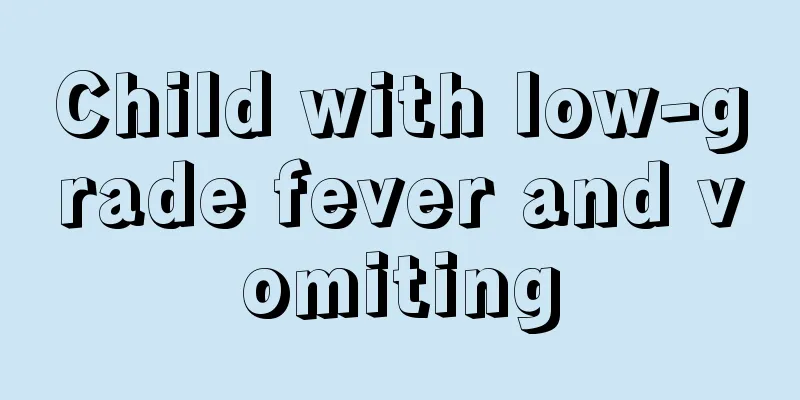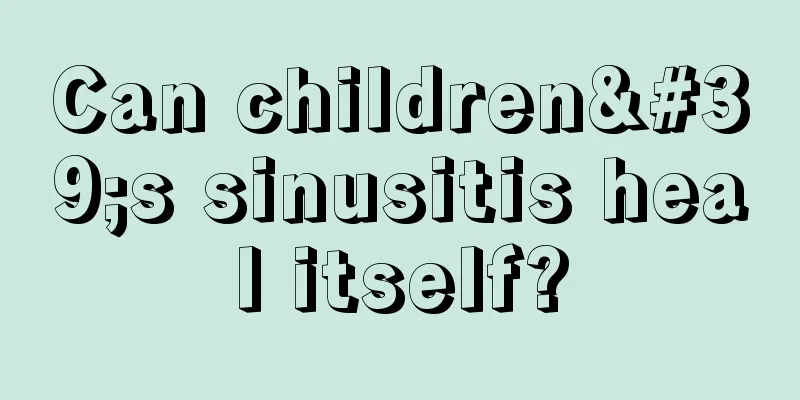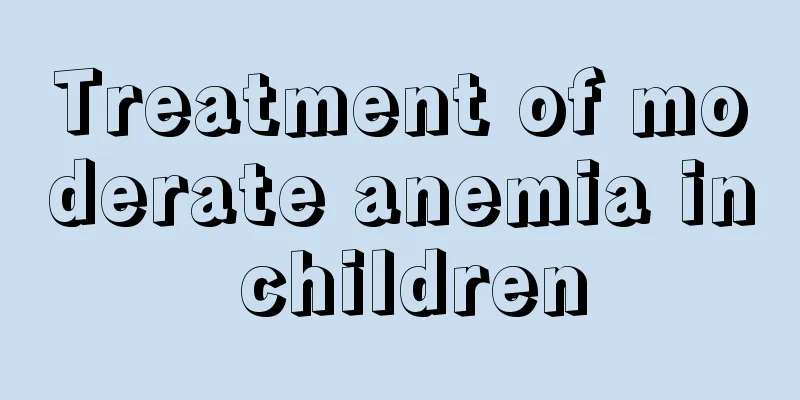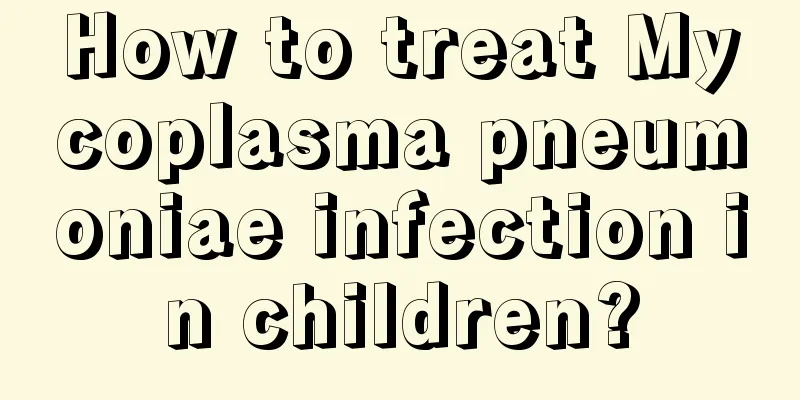Child with low-grade fever and vomiting

|
Children are particularly prone to fever when they are young, because their bodies are very fragile during this period. If children have frequent fevers, it will cause many complications. If these changes are not treated in time, they are very harmful to children. They are particularly prone to cause gastroenteritis in children and may also cause children to have a low fever and vomiting. So what should children do if they have a low fever and vomiting? Baby low fever vomiting If your baby has a low-grade fever and vomiting, you should still take your baby to see a doctor. You must pay attention to the following points: 1. Low-grade fever and vomiting in babies are common in acute gastroenteritis and upper respiratory tract infections, such as gastrointestinal colds, etc. Second, pay close attention to the child's fever, number of vomiting times, abdominal pain, diarrhea, runny nose, cough and other symptoms, whether there is dehydration due to decreased urine volume, and also pay attention to the child's mental state. Third, let the doctor give the child a comprehensive diagnosis and treatment. In addition to treating the primary disease, you should also pay attention to whether there are symptoms of dehydration caused by fever and vomiting, and then carry out fluid rehydration treatment based on the doctor's judgment. Vomiting is one of the most common symptoms when a child is sick. Vomiting not only makes the child very painful but also affects the child's eating. Parents will also be very nervous about this. Therefore, parents should learn to preliminarily judge the cause of vomiting. Among the various reasons, the most important ones are: 1. Improper feeding or eating: Overfeeding during the neonatal period, improper milk formula, swallowing large amounts of air while feeding; infants and young children eating large amounts at one time or food that is difficult to digest. 2. Abnormal digestive function: Systemic infectious diseases. If you suffer from upper respiratory tract infection, bronchitis, pneumonia, sepsis and other diseases, you will often experience vomiting along with high fever, nausea, loss of appetite, etc. 3. Digestive tract infectious diseases: gastritis, enteritis, dysentery, appendicitis and other diseases can cause reflex vomiting due to local irritation, which is often accompanied by other digestive system symptoms such as nausea, abdominal pain and diarrhea. 4. Neurological diseases: Central nervous system diseases such as encephalitis, meningitis, intracranial hemorrhage or tumors, and craniocerebral trauma can also cause vomiting, which is characterized by no nausea before vomiting and projectile vomiting, but is often accompanied by other symptoms of the nervous system, such as headache, mental depression, drowsiness, and even convulsions and coma. 5. Mental factors: Some children may vomit due to excessive mental stress or anxiety caused by certain reasons. Recurrent vomiting is sometimes related to mental factors. 6. Poisoning: including various poisonings, such as food poisoning, poisonous animals, plants, drugs, pesticides, etc., almost all of which have vomiting symptoms, but different poisonings have their own clinical characteristics for identification. 7. Others: Vestibular dysfunction of the inner ear or Meniere's disease (hydromatous accumulation in the inner ear membrane and labyrinth) causes severe vomiting, but is often accompanied by vertigo and visual rotation; congenital gastrointestinal malformations in children, such as gastric torsion, hypertrophic pyloric obstruction, etc. In addition, vomiting is also severe in children with intestinal ascariasis who have intestinal obstruction or biliary ascariasis. After parents understand the above-mentioned causes of vomiting, they can analyze them in combination with their children's performance. With an idea in mind, they will not panic when vomiting occurs. |
<<: How long can a child survive sepsis?
>>: What to do if a child has a low-grade fever
Recommend
How to regulate children's stomach
In the process of taking care of babies, we alway...
What are the recipes for baby cough
There are many colds recently and the weather is ...
Newborn not urinating
If a newborn baby does not urinate, you should pa...
Can children’s indigestion be cured by taking medicine? How to deal with it?
Children have no resistance to delicious food, th...
What should I do if my child suddenly has a fever in the middle of the night?
Babies are prone to fever in summer. Because the ...
A five-year-old child has a sore throat with white spots
If a five-year-old child has a sore throat and wh...
What should I pay attention to when giving massage to infants and young children?
Massage is a very common way for modern people to...
Are there any side effects from rabies vaccination for children?
Nowadays, many families have pets, the most commo...
The best way to treat stuttering in children
Stuttering is very common. There are many reasons...
Reasons for high normal blood pressure in children
Hypertension is common among the elderly, but it ...
Causes of shortness of breath in children
If children's shortness of breath is not caus...
What should I do if my four-year-old child suffers from long-term constipation?
Many children will have some eating problems afte...
What should children pay attention to when running?
When children first start learning to run, their ...
What is the cause of heel pain in a 10-year-old child?
Children are in a lively and active period, so it...
Symptoms of otitis media in six-month-old babies
If a six-month-old baby gets otitis media, the ha...









